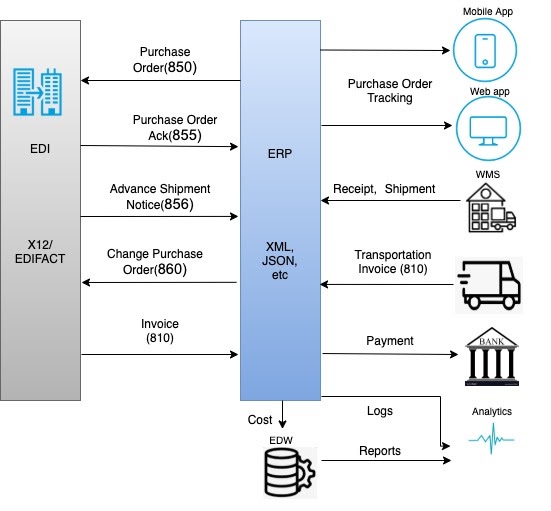Pulse of Information
Your source for the latest insights and updates.
API Integration: The Matchmaker Your Software Deserves
Unlock your software's true potential! Discover how API integration is the ultimate matchmaker for seamless, powerful connections.
Understanding API Integration: How It Transforms Software Interconnectivity
In the digital age, API integration has become a cornerstone of software development, allowing disparate systems to communicate seamlessly with one another. APIs, or Application Programming Interfaces, serve as bridges that facilitate data exchange and functionality between applications. By leveraging APIs, businesses can enhance their software ecosystems, allowing for streamlined processes, improved efficiency, and the ability to provide richer user experiences. For instance, consider how an e-commerce platform integrates payment gateways through APIs, enabling secure transactions without the hassle of users visiting multiple sites.
The transformation brought about by API integration extends beyond mere communication; it fosters innovation and accelerates development cycles. Companies can now rapidly integrate third-party services, from analytics tools to social media platforms, ensuring their applications remain competitive and feature-rich. With API-driven architectures, developers can build modular applications where each component can be updated independently, leading to greater flexibility and agility. This paradigm shift not only boosts productivity but also significantly reduces time-to-market for new features, ultimately benefiting both developers and end-users alike.

Five Key Benefits of API Integration for Modern Businesses
In today's fast-paced digital landscape, API integration has become essential for businesses aiming to enhance their operational efficiency. One of the primary benefits is improved data sharing, allowing different software applications to communicate seamlessly. This facilitates real-time collaboration across departments, enabling teams to access up-to-date information and make informed decisions. Furthermore, it minimizes data silos, ensuring that all stakeholders have the insights they need to drive strategic initiatives.
Another significant advantage of API integration is the scalability it offers modern businesses. As companies grow and evolve, their technology needs change. With APIs, organizations can easily integrate new tools and systems without overhauling their existing infrastructure. This flexibility supports innovation by allowing businesses to adopt cutting-edge technologies and services that enhance customer experiences and streamline operations. In doing so, companies can stay competitive in an ever-changing market.
What is API Integration and Why Does Your Software Need It?
API integration refers to the process of connecting different software applications through their Application Programming Interfaces (APIs), allowing them to communicate and share data seamlessly. This integration enables businesses to automate processes, enhance functionality, and create a more cohesive user experience. With APIs, developers can pull in data from various sources, allowing for real-time updates and comprehensive reporting. In today's digital landscape, where efficiency is key, leveraging API integration is essential for ensuring that your software solutions can work together effectively.
Furthermore, API integration plays a critical role in scalability and flexibility. As your business grows, you may need to incorporate additional services or platforms to meet evolving demands. An integrated software ecosystem allows for quicker adaptations and expansions without disrupting existing workflows. Additionally, it fosters innovation, as businesses can easily adopt new technologies and services to enhance their offerings. Therefore, if you want your software to remain competitive and responsive to market needs, investing in API integration is not just beneficial—it's necessary.